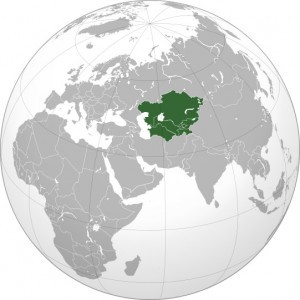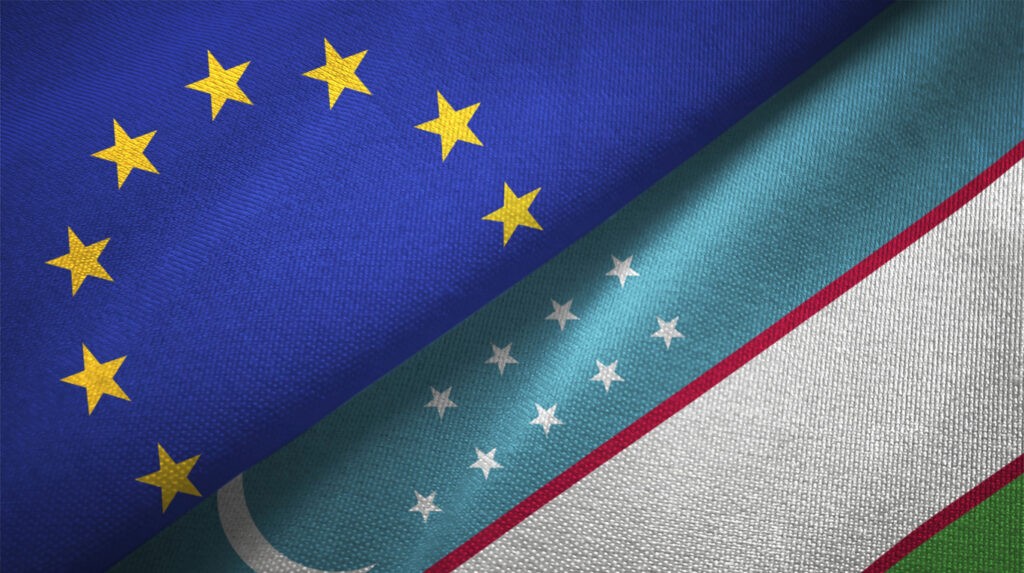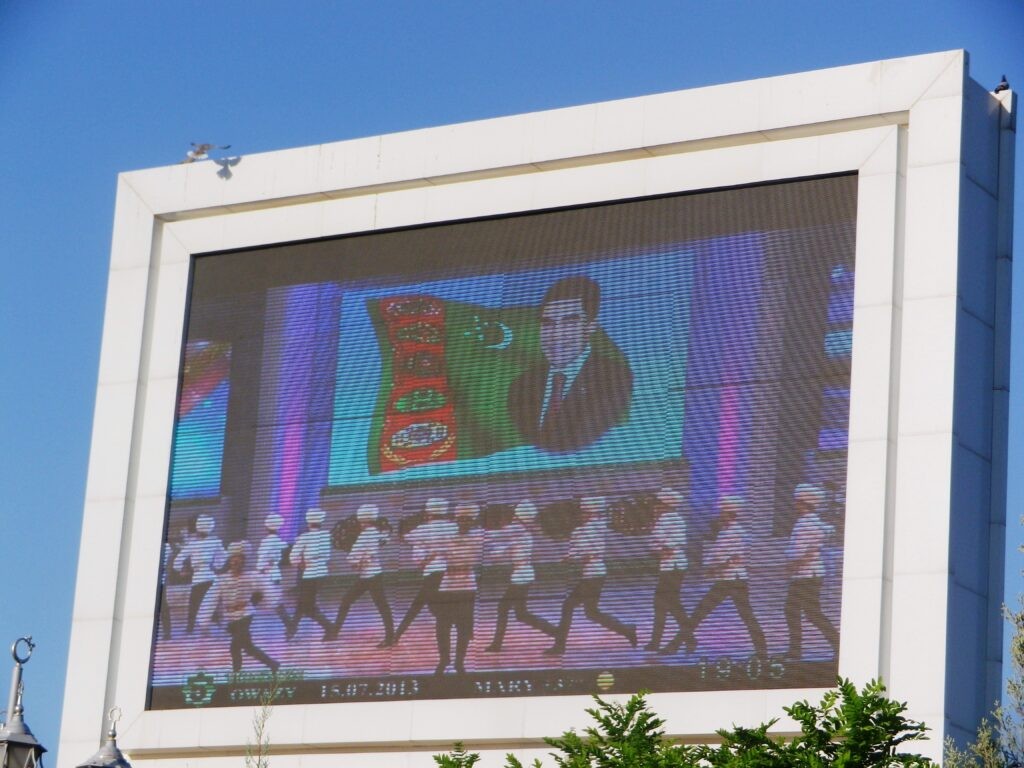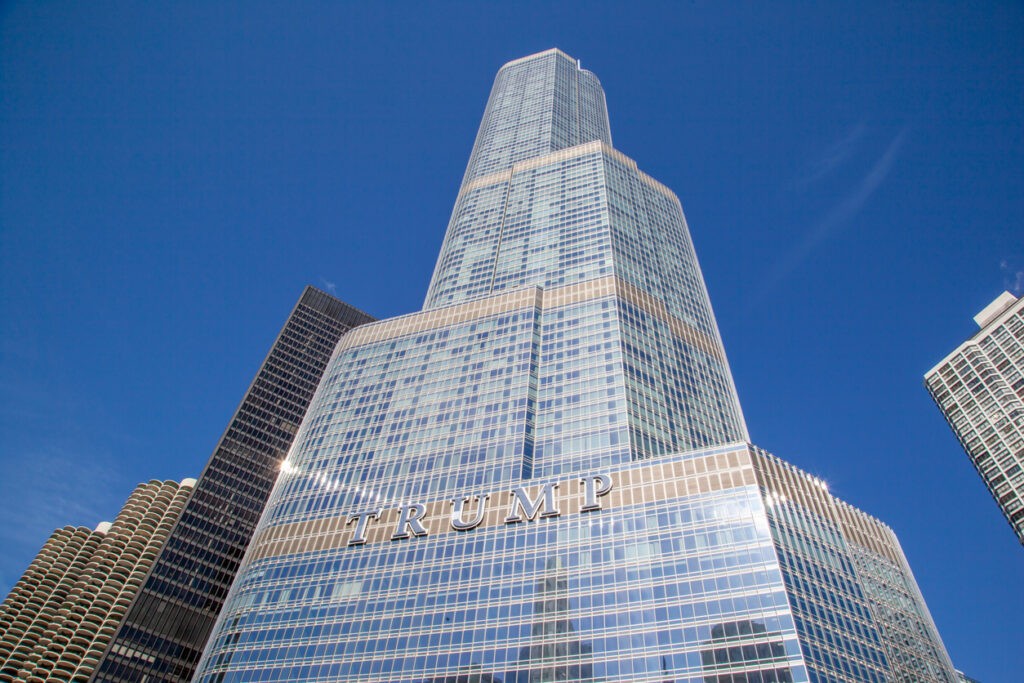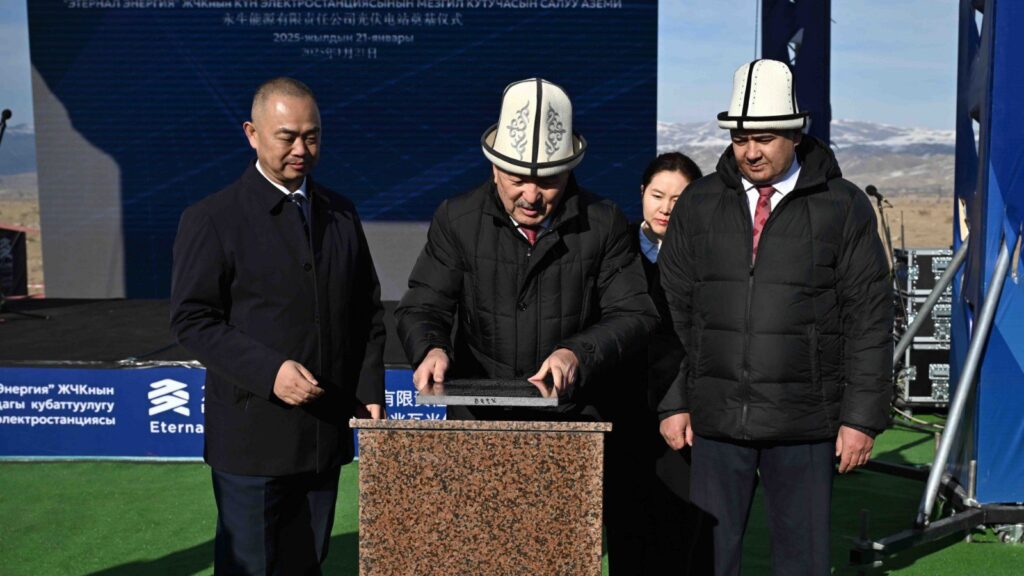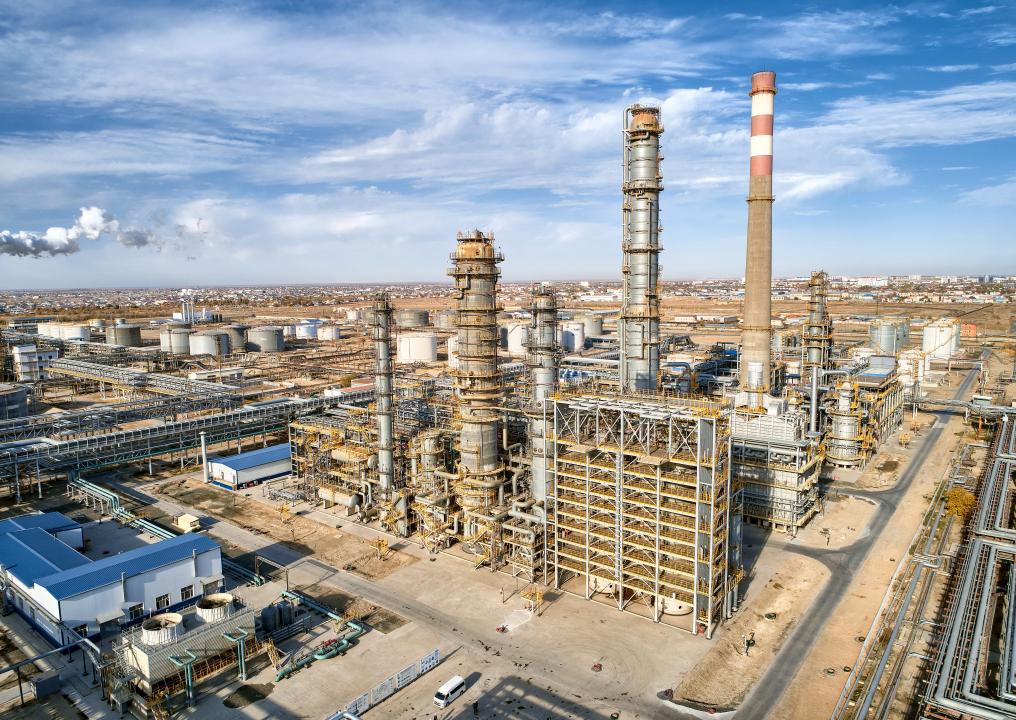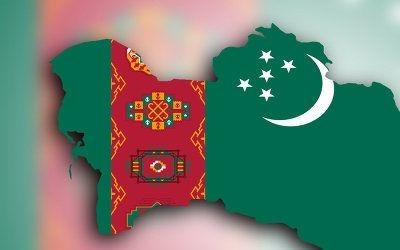BISHKEK (TCA) — The Times of Central Asia presents to its readers Stratfor’s Global Intelligence, a weekly review of the most important events that happened in the world — from Europe to Middle East to Russia to Central Asia to Afghanistan to China and the Americas.
The Week That Was
Turkey’s Political Tensions Boil Over
Turkish Prime Minister Ahmet Davutoglu announced this week his decision to resign as premier and step down as chair of the ruling Justice and Development Party at a May 22 extraordinary convention. Davutoglu, an academic at heart and the architect of Turkey’s “Strategic Depth” policy that argues for a re-expansion of Turkish influence in the former Ottoman sphere, has served as a more moderate counterbalance to President Recep Tayyip Erdogan on Turkey’s most contentious issues, from safeguarding Internet privacy to tempering the government’s containment policy against the Kurds. What Erdogan evidently could not tolerate was Davutoglu’s resistance to his plans to transform Turkey’s government into a presidential system. The last straw for Davutoglu was when he was overseas in Qatar signing a deal to open a military base, while at home Erdogan had the party draft up an accord that would strip the prime minister of his authority to appoint Justice and Development Party (AKP) provincial and district heads. While Davutoglu was visibly upset when announcing his resignation, he does not seem prepared, at least not yet, to risk splitting the ruling party to challenge Erdogan from within.
Davutoglu’s exit will enable Erdogan to insert a more suitable loyalist to help push through a draft constitution on a new presidential system and continue pursuing a hard-line policy against the Kurds. Potential replacements include Transport Minister Binali Yildirim, Energy Minister Berat Albayrak (Erdogan’s son-in-law,) Deputy Prime Minister Yalcin Akdogan, Justice Minister Bekir Bozdag and AKP Deputy Chairman Mehmet Ali Sahin. It does not appear that early elections are in the cards. The AKP does not necessarily want to gamble in the polls when the country’s security vulnerabilities are on the rise and economic conditions are deteriorating. Without a moderate like Davutoglu, Erdogan’s consolidation over the government could also polarize voters.
European leaders are understandably nervous that the political shift in Ankara could unravel an already fragile deal designed for Turkey to offload the migrant burden from Europe in exchange for visa liberalization for Turks. Erdogan has been adamant that Europe needs to butt out of Turkey’s fight with the Kurds and his policies will certainly make it tougher for Europe to look the other way on human rights considerations when bargaining with Ankara. We can expect delays on the migrant deal, but a personality shift alone is not going to kill this negotiation.
Stress on Saudi Reforms
Saudi Arabia may be trying to keep the spotlight on its big reform plans, but it is also having a hard time concealing the amount of financial stress on the kingdom. This week, the spotlight was on one of Saudi Arabia’s largest construction firms, the family-owned Saudi Binladin Group. Over the weekend, a small group of foreign workers upset about delayed wages and job terminations torched several buses near the company’s worker housing in the city of Mecca. While reports that tens of thousands of foreign workers were to be laid off were made public early in the week, a clarification in local press that 12,000 of the firm’s 17,000 Saudi workers were to be laid off as well elicited a strong response from not only the media but from the government.
Clearly intent on containing negative attention on the firm and the economic health of the Kingdom, Riyadh quickly reinstated the Saudi Binladin Group’s access to public sector contracts, from which the firm had been blocked since a crane collapsed in Mecca in September 2015 that killed over 100 worshippers. The firm has recently acquired a new Morgan Stanley-trained chief financial officer and is keen to broadcast that it is solving the wage delay disputes and job terminations with the involved parties. Saudi Arabia’s near and long-term plans will include lots of lucrative construction contracts for public and private sector construction companies, but it is unclear how dependable Saudi government payments will be as low oil prices persist. It is also unclear how the government will handle any future large-scale layoffs of Saudi nationals, as such moves directly contradict Saudi Arabia’s labor nationalization schemes.
Mexico’s Shifting State-Federal Relations
We are keeping an eye on a potential shift out of Mexico that could impact investor relations in the country. Kia Motors Corp. was taken by surprise when Nuevo Leon Gov. Jaime Rodriguez said that he could not honor the previous governor’s investment terms with the car manufacturer, such as 20 years of payroll tax exemptions. Rodriguez, originally part of the Institutional Revolutionary Party, ran as an independent last year and has ambitions for the presidency. South Korean President Park Geun Hye asked Mexican President Enrique Pena Nieto to intervene in this dispute to get the project back on track when the two met in April. This week, Mexican Economic Secretary Ildefonso Guajardo said that the problem with Kia Motors’ approach to investing in Nuevo Leon state was that they approached the state government first to negotiate investment incentives and not the federal government. State governments are technically empowered to negotiate investment incentives with foreign firms. If the federal government asserts itself to avoid a Kia v. Nuevo Leon case, this could be a notable shift in state-federal relations and how investment deals are negotiated in Mexico.
U.S. and Russian Militaries Still Building Up
Even as the United States and Russia continue searching for compromises and concessions in the Syrian and Ukrainian conflicts, the conventional military buildup on both sides continues. This week, a number of high-ranking U.S. military officers including the U.S. Chairman of the Joint Chiefs of Staff Gen. Joseph Dunford said that the United States is studying options for expanding its military presence in Eastern Europe. Already, the United States aims to beef up its two permanent brigades in Europe with the deployment of a third brigade in a rotational capacity. These units alongside others from NATO members would signal the organization’s commitment to Eastern European allies against a potential Russian threat. The Russians in response have re-emphasized their plans to build up their own forces in their western frontier with NATO. Russia’s military is transitioning their brigade level army structure to a primarily division-based model and has already reconstituted the 1st Guards Tank Army, with plans to upscale at least three units into division-sized formations.
In North Korea, a Scripted Party Congress
North Korea is holding its 7th Workers’ Party Congress, the first in three decades, expected to last until May 9-10 and meant to consolidate and institutionalize Kim Jong Un’s rule. On the first day, Kim highlighted achievements of the country’s nuclear weapons and missile programs and single out the nuclear capabilities as a protective layer enabling the pursuit of economic development. Other highlights are yet to be reported, though an announcement of major new policy initiatives should not be expected during the highly scripted event. Instead, a Supreme People’s Assembly meeting later this year may reveal such initiatives. The congress is expected to elect a new Central Committee and assign posts in the party’s various organs, providing insight into Kim’s efforts to consolidate his rule.
Full Articles
Saudi Arabia and Iran: Enemies With a Common Problem
As technology has progressed, Internet and cellphone users have gained greater freedom and privacy. At the same time, governments can use some of the same tools to achieve their own ends, whether for simple communication or for better surveillance. For states such as Iran and Saudi Arabia — which, for all their fierce rivalry, share the same struggle in managing political opposition at home — these technologies present both an opportunity and a challenge to leaders striving to stay in control.
Despite their antagonism toward each other, Iran and Saudi Arabia have similar strategies for regulating electronic interaction. Both monitor citizens’ emails, social media and text messages in the name of protecting their nations’ moral fiber and national security. And without the capability to develop their own equivalents of popular programs such as Twitter, Telegram, WhatsApp and Facebook, both countries have been forced to accept the risks of such applications along with their advantages, managing the prospect of greater public discourse — and dissent — as best they can.
Fighting for Concessions in the Ukrainian Conflict
A May 1 cease-fire in eastern Ukraine between Ukrainian security forces and pro-Russia separatists is largely holding, for now. The cease-fire is likely Moscow’s last chance to demonstrate its intent to meet the security components of the Minsk protocols before the European Union reviews its sanctions on Russia in July. However, Kiev’s desire to eradicate political infighting and maintain its Western support against Russia may keep Ukraine from fully implementing the cease-fire unless Russia makes more security concessions.
Gene Editing: Tailoring the Future of Biotech
Just over a year ago, Chinese laboratories published the results of a controversial experiment, one that enabled the selective editing of genomes belonging to human embryos. A flurry of ethical debates and research on the relatively new technique known as CRISPR took place in the aftermath. Scientists and policymakers alike were quick to explore the potential applications — and implications — of gene editing. Given the recent anniversary of clustered regularly interspaced short palindromic repeats (CRISPR) and a related intellectual property battle dragging on in U.S. courts, it is appropriate to evaluate the progress gene-editing technology has made, and determine how valid our previous assessment of the technology’s potential impact was.
Bad Blood Still Flows Between Algeria and Morocco
Suspicion and unease are creeping back into relations between Algeria and Morocco. An undeniable shift in power has occurred between the neighboring countries, as Algeria’s military spending outpaces Morocco’s. Large-scale Algerian arms purchases in 2016 reinforce the likelihood that Algiers will continue investing heavily in its military. And as Algeria bolsters its forces, Morocco’s position in the region will only get more precarious, especially if a crisis or conflict erupts. To counter Algeria, Rabat will seek alternative strategies to retain its security. But whether Morocco chooses to do so through select military procurements or through alliances, there is no guarantee its forces can match Algeria’s new weaponry.
A Rare Congress and Mixed Signals in North Korea
For the first time in more than 35 years, North Korea is preparing to hold a full Congress of the Workers’ Party of Korea (WPK). Originally intended to be a regular occurrence for the WPK, party congresses convened only sporadically until 1980, when Kim Jong Il was named as Kim Il Sung’s successor, and juche (loosely translated as self-reliance) was formalized as the government’s official guiding philosophy. In the years since, though the WPK has officially remained at the center of the North Korean political system, party congresses have lost their central role in the political cycle. Scheduled to begin May 6, the 2016 congress marks the revival of a more public political style in the country, playing on the formalism of party structure and events.
China and Japan Compete for Southeast Asia’s Railways
China and Japan’s competition for commercial influence in Southeast Asia is heating up, with the next contest taking place on the Malay Peninsula. In the coming months, Singapore and Malaysia are expected to move forward on a joint high-speed rail project that will connect five cities between Singapore and Kuala Lumpur. The 350-kilometer (about 217-mile) line is a key part of the geographically fragmented region’s broader integration goals and, like a number of other infrastructure projects in Southeast Asia, a priority for both Tokyo and Beijing.
The Week Ahead
Brazil’s Impending Senate Vote
The end may be near for Brazilian President Dilma Rousseff. On May 11, Brazil’s Senate will decide by simple majority whether to remove Rousseff from her post for the duration of impeachment proceedings, which could last up to six months. If the Senate votes to remove Rousseff, some protests from movements aligned with Rousseff’s Workers’ Party can be expected. Vice President Michel Temer will come to power, but that does not mean Brazil’s political troubles will be over. Temer also faces an investigation for allegedly funding his 2014 re-election campaign with funds received from corrupt activities involving state energy firm Petroleo Brasileiro. Temer’s tenure may only last from mid-May until early next year if the electoral court rules that his campaign was illegally funded.
Upcoming Philippine Elections
The Philippines will hold national elections on May 9, which come amid a traditional upsurge in politically motivated violence. Leading the presidential polls by 30 percent is populist candidate Rodrigo Duterte. Duterte has been a mayor of Davao City in the restive southern autonomous region of Mindanao, credited for improving the city’s safety record and local economy. He is also the candidate with no familial ties to Philippine political dynasties. His background and populism have resonated among the electorate, with its grievances of crime, corruption, and poverty, during the election cycle. Duterte promised to tackle these issues and even to abolish the Congress if it stood in the way.
He also expressed willingness to engage with China bilaterally on the issue of disputed land features in South China Sea rather than through the international court, which is expected to issue its ruling on a related case in the coming weeks. The position appears to stem from his interest to attract China’s investments to fill nationwide infrastructure gaps and promote development. If he wins, and this is likely, Duterte will nevertheless be constrained on domestic and foreign policy because of vested interests of political dynasties as well as the Philippines’ developing security ties in the South China Sea with the United States and Japan.
Kenya’s Refugee Policy
Kenya will bear close watching following the government’s threat to close down the Dadaab and Kakuma refugee camps (and others) as soon as possible. The government has reportedly already disbanded the Department of Refugee Affairs to start the process, citing the security challenge posed by Somalia’s al Shabaab militant group as a principal motivator. As of now, there is little detail on how the Kenyan government would undertake such an operation, as Kenya hosts more than 600,000 refugees from war torn countries such as Somalia and South Sudan. Kenya’s operation, if carried out, would reverberate throughout the region, as refugees would strain existing aid and security programs in neighboring countries. The sudden declaration likely relates to renegotiations of the Tripartite Agreement, signed by Somalia, the United Nations High Commissioner for Refugees and Kenya in 2013, which provides a legal framework for repatriation of Somali refugees in Kenya. Given Kenya’s unease with the slow pace of Somali repatriation, the government may be using its new position to pressure the other two signatories into extending or renegotiating the agreement. Kenya could also use the threat of closing down the camps to extract aid concessions from the West. Any moves to close down the camps could create security disruptions.
A Fragile Meeting on Ukraine
The foreign ministers of the Normandy Four group (Russia, Ukraine, Germany and France) will meet May 11 in Berlin amid a relative cease-fire in eastern Ukraine, a new government in Kiev and a Moscow willing to talk. It is one of Russia’s last chances to find compromise — or at least demonstrate intent to — on the security components of the Minsk protocols before the European Union decides whether to let its sanctions on Russia expire in July. The debate is still hot in the European Union, and Moscow is lobbying countries such as Hungary, Italy, Greece and France heavily. Still, Russia does not look willing to make more security concessions if Ukraine does not follow suit. But Ukraine wants more security guarantees from the West, while political infighting in Kiev could hamper the process, making the cease-fire extremely fragile going into this week’s talks.
A Potentially Disruptive Moldovan Parade
Moldova will hold a Victory Day parade on May 9, joining many former Soviet countries in recognizing the Soviet Union’s contribution to the defeat of Nazi Germany in World War II. Pro-Russia groups such as the Socialists and Our Party have spoken against plans for U.S. military vehicles that plan to join the parade. Socialist Party leader Igor Dodon has pledged to block access of U.S. hardware to Chisinau prior to the parade. He has also threatened protests and other actions in case of U.S. participation in the event. Demonstrations of pro-Russia groups have already disrupted Moldova’s political stability (LINK Amid Protests, Moldova Finally Appoints a Government). The Victory Day parade will be key to watch for its potential disruption and security volatility.
